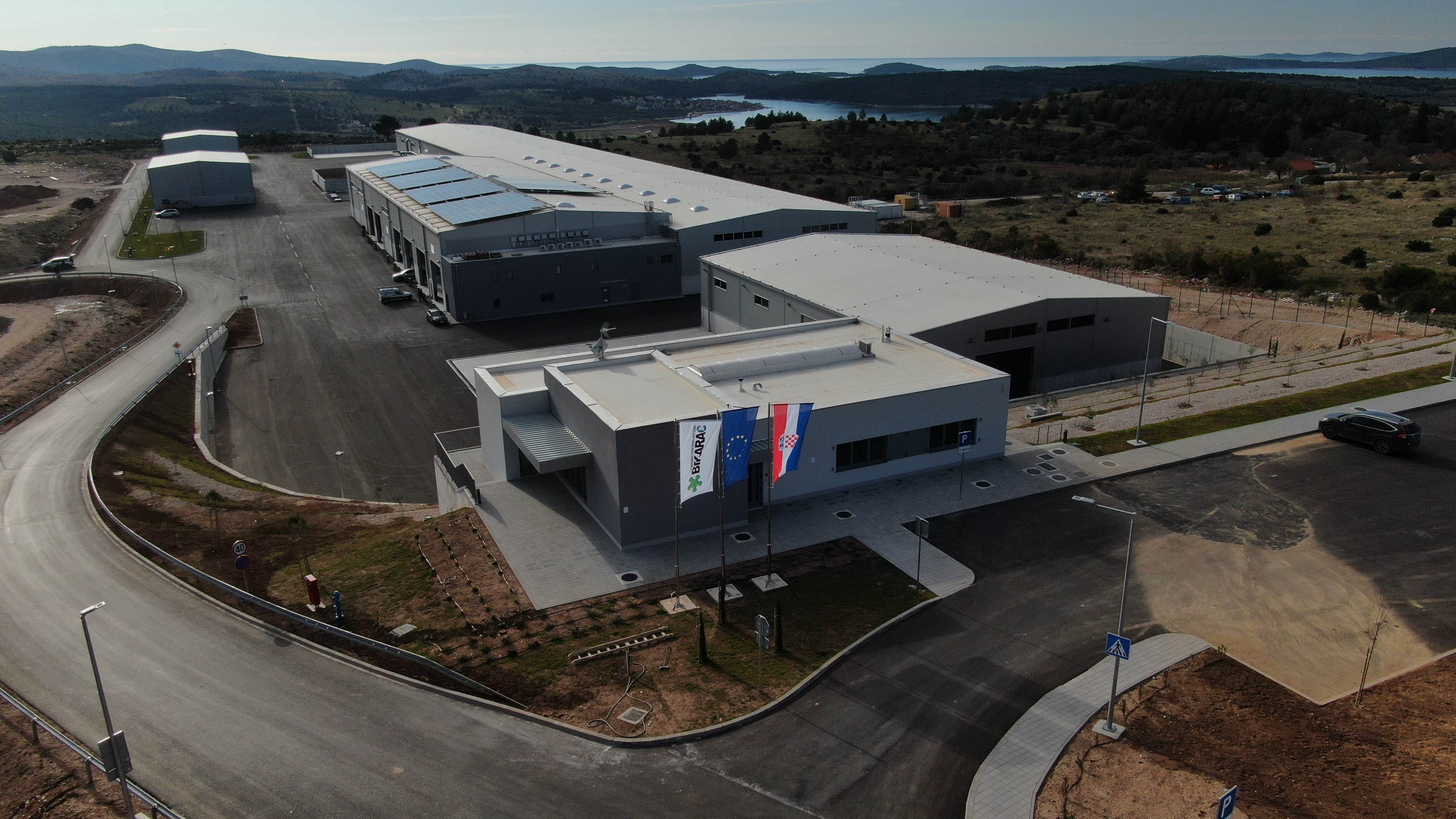The second phase of a project to establish a comprehensive and sustainable waste management system for Šibenik-Knin County, Croatia has been implemented with EU funding. Construction of the Bikarac waste management centre is the main element of the project. In the second phase, a mechanical biological treatment plant has been built at the centre and two waste transshipment stations have been set up at Biskupija and Pirovac.
- 17 February 2021
‘Quality waste management is a prerequisite for sustainable development and one of today’s biggest challenges. With the opening of the Bikarac plant, we have overcome this challenge. This is not just a question of a municipal service, but one of quality of life.’
Vehicles have been acquired to transport waste between the transshipment stations and the waste management centre. The stations will cut waste management costs so that a set price per tonne of waste can be offered to all local government units.
Technology for treatment of municipal waste has been purchased, making it possible to create high-quality secondary raw materials that can be used in production processes. Products obtained from waste management include paper, metals, plastic, glass, fuel, and compost.
Treatment and composting
The mechanical biological treatment plant can process up to 50 000 tonnes of waste a year. It contains two units: one for mechanical and biological treatment; and one for composting.
Work on the plant entails the construction of buildings for mechanical treatment of mixed municipal waste and biological treatment of the organic fraction of mixed municipal waste – for instance, food, paper, and garden waste – and separated biowaste. Further constructions are used for mechanical pre-treatment (shredding and mixing) of separated biowaste and storage of combustible waste and secondary raw materials.
Facilities have been set up for treatment of bulky waste, baling of secondary raw materials and storage of compost prior to its distribution for sale and compost-like output from biological treatment before its disposal in landfill. A compost packaging system and biofilters for treatment of waste gas have been installed, and an administrative building and access roads have been built.
Previous work
In the first phase, remediation measures were carried out on existing landfills prior to their closure. A sanitary landfill, in which waste is isolated from the environment and allowed to decompose into biologically and chemically inert materials, was then created.
A pilot project was implemented in Šibenik, involving the separate collection of waste PET, paper and cardboard, and glass packaging. In the second phase, this scheme has been expanded across Šibenik-Knin County.
Additional features of the second phase include the installation, at the new landfill, of a drainage system for storm water and leachate – contaminated liquid from water percolating through the site – and education and publicity actions to help achieve waste management goals.
Total investment and EU funding
Total investment for the project “Establishment of a comprehensive and sustainable waste management system in Šibenik-Knin County – Bikarac county waste management centre – phase II” is EUR 29 177 382, with the EU’s European Regional Development Fund contributing EUR 14 682 427 through the “Competitiveness and Cohesion” Operational Programme for the 2014-2020 programming period. The investment falls under the priority “Environmental protection and resource efficiency”.

